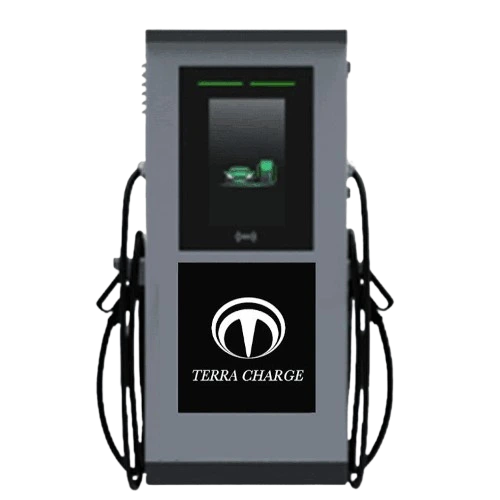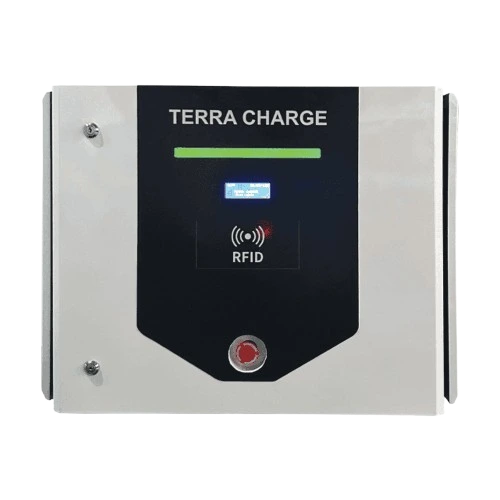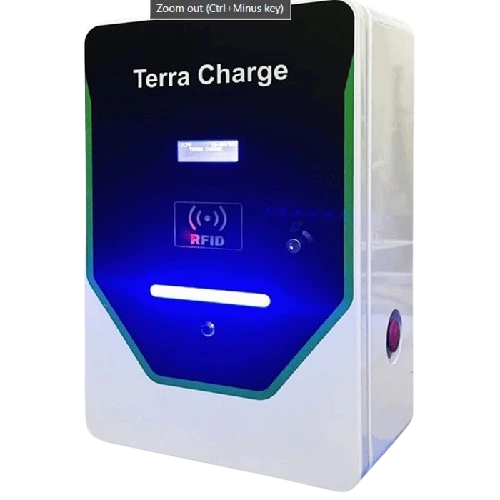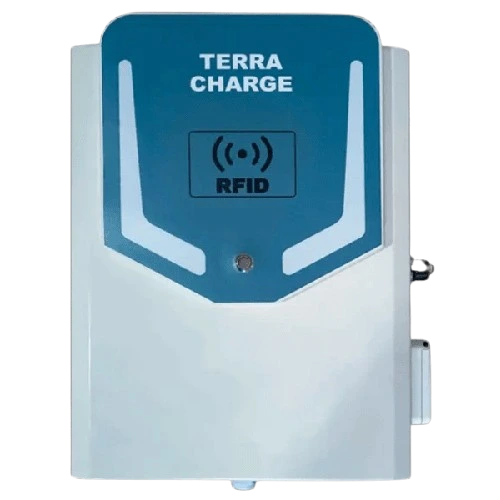RFID or Radio Frequency IDentification card technology finds diverse applications, particularly in facilitating payment for EV charging. RFID cards streamline the charging process at public charging points, enabling users to initiate a charge simply by tapping their card against a reader.
What is an RFID Card for EV Charging?
RFID is the abbreviation Radio Frequency Identification technology has transformed various aspects of daily life, facilitating contactless payments and automated library systems. An RFID card for EV charging enables access, authentication, and payment at electric vehicle charging stations. These cards or key fobs communicate wirelessly with chargers via radio waves, eliminating the need for an internet connection. Whether using a personal charging station or encountering public charging points, tapping the RFID card initiates the charge session smoothly.
How to Use RFID on EV Charger?
To use RFID on EV charger, an EV owner should follow the following steps:
Step 1: Locate a charge point
- Use online resources or an RFID app to find nearby EV charging stations that accept RFID cards.
- These tools provide details such as charger speed, availability, and costs to help you choose the most suitable station.
Step 2: Plug in your vehicle
- Park your EV near the selected charging point and connect it to the charger.
Step 3: Tap the RFID Reader with your card
- Most charge points have a reader where you tap your RFID card before plugging in your car.
- This action authenticates and starts the power flow from the charger to your EV battery system, similar to swiping a credit card for authorization.
Step 4: End the charge
- When your battery reaches its maximum level or meets your travel needs, manually stop the charging session via the app or disconnect the charger from your EV’s interface.
- Complete the session by tapping your RFID card on the charger.
Advantages of RFID

Following are the advantages of RFID:
- Using an RFID card for EV charging offers autonomy and adaptability, simplifying the charging process across different stations.
- EV owners enjoy seamless experiences without dealing with incompatible systems or unique requirements from various service providers.
- A single RFID card eliminates the need for multiple access keys or apps, providing hassle-free access to charge points.
- Real-time updates on vehicle charging status add to the convenience.
- RFID cards enhance security by transmitting encrypted data during transactions, minimising the risk of fraudulent activities.
- Compared to traditional payment methods, RFID cards offer a more secure environment, reducing the potential for unauthorised exploitation.
- Adopting RFID cards for EV charging can lead to significant cost savings.
- Shifting from conventional vehicles to EVs is already associated with reduced fuel costs, contributing to overall savings.
- Companies often offer usage plans tailored to specific needs, allowing users to optimise expenses further.
The Problem of Different RFID for different EV chargers?
The challenge of using different RFID cards for various EV chargers lies in the lack of standardisation across charging networks. Each charging provider often uses its proprietary RFID technology, resulting in the need for EV owners to manage multiple cards or key fobs for access. This fragmentation can lead to inconvenience as drivers may encounter compatibility issues or the necessity to sign up with multiple service providers. Standardizing RFID technology across the industry could streamline the user experience and enhance the accessibility and efficiency of EV charging infrastructure.
Conclusion
RFID technology has significantly improved the convenience, security, and cost-effectiveness of EV charging. The use of RFID cards streamlines the charging process, providing autonomy and adaptability for EV owners across different charging stations. However, the challenge of using different RFID cards for various EV chargers highlight the need for standardization in the industry to enhance user experience and efficiency. Despite this issue, RFID technology remains a valuable tool in advancing the accessibility and sustainability of EV charging infrastructure.












